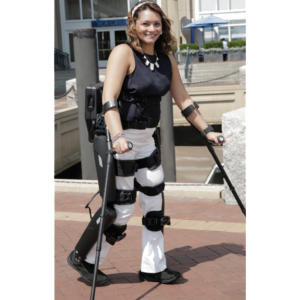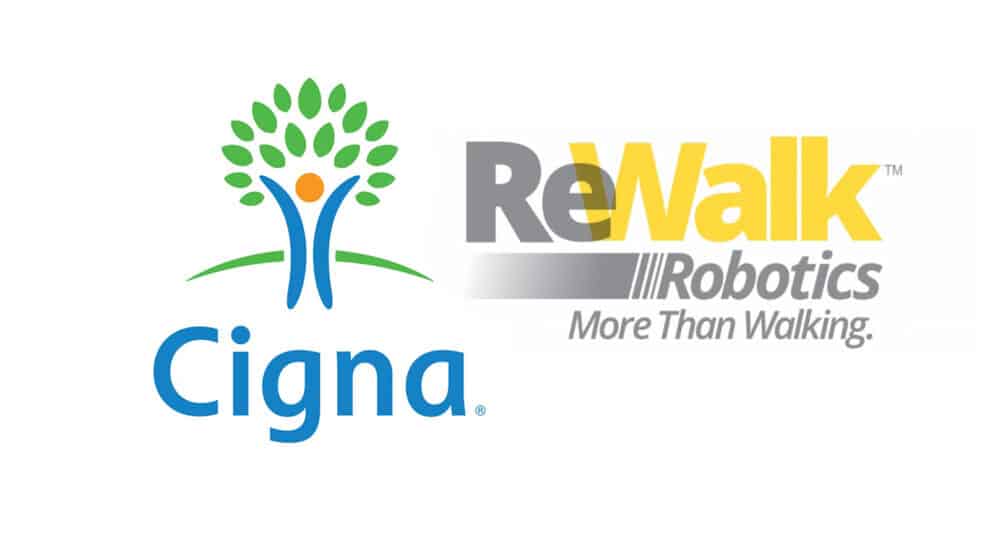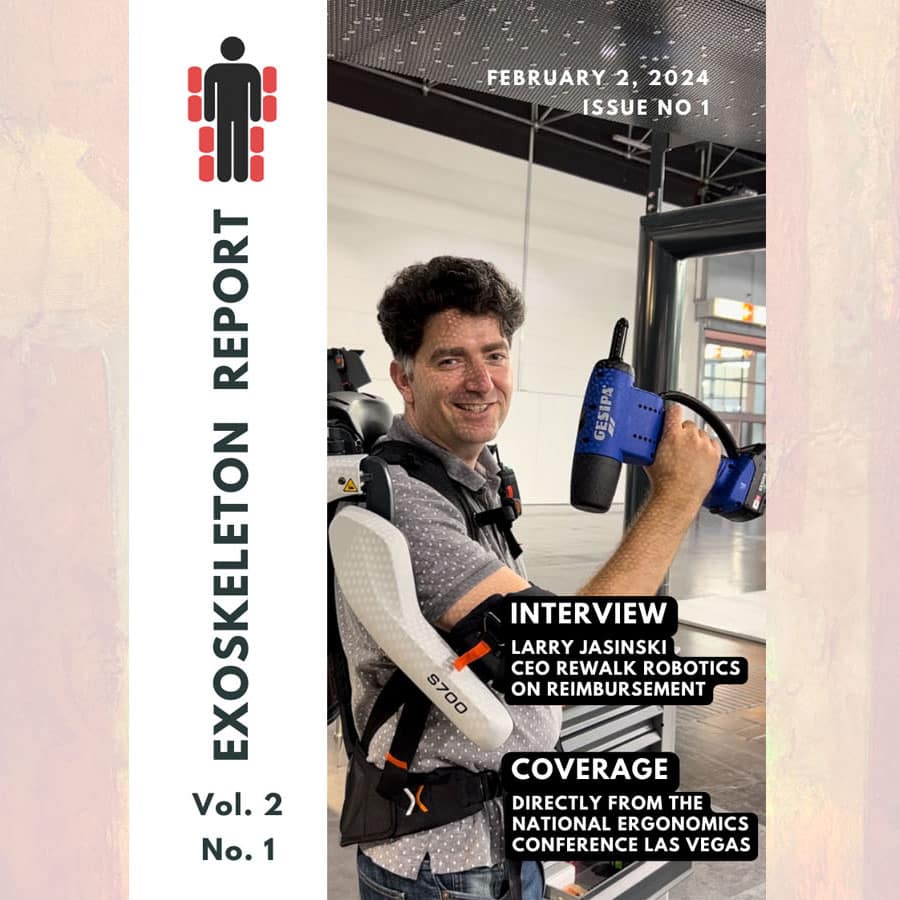ReWalk Robotics has issued a press release that Cigna, a global health service company, has already revised its policy on medical exoskeleton coverage for people with spinal cord injury. The new revision will change gait assist exoskeletons, such as the ReWalk 6.0, from “non-coverage” to “case-by-case” consideration.
According to ReWalk, this is the first policy revision of its kind from a major U.S. insurer. The updated policy is already in effect, however, Cigna is not expected to officially update its policy until its next review date in the third quarter of 2019.
What is Cigna?
Cigna is a publicly traded (NYSE: CI) global health service provider with locations in 30 U.S. states. The company has over 45,000 employees worldwide with $41.6 billion in revenues. Combined, Cigna processed 168 million medical claims in 2017 and has a relationship with over one million healthcare providers, clinics and facilities.
With Cigna being such a major player in the world of healthcare, any changes to their insurance coverage for medical orthoses, including lower-body powered exoskeletons is bound to be noticed.
Cigna’s original stand on exoskeletons:
The currently published Cigna Medical Coverage Policy on Lower Limb Orthoses and Shoes (0150) has an effective date of August 2018 and a next review date of 8/15/2019 (which one would expect is when the policy revision will be officially posted). As it stands, Cigna lists exoskeletons such as the ReWalk Personal System as “experimental, investigational or unproven.” Curiously, the various Cigna policies regularly use “endoskeleton” and “exoskeleton” to distinguish between devices that replace a limb vs assisting a limb.
Proof of Efficacy
Reading through the officially posted coverage policy it appears the Cigna is looking to pool medical studies not just for ReWalk but all similar gait assist exoskeletons:
“Evidence in the medical literature evaluating the use of these devices is limited to small studies performed in the laboratory setting, systematic reviews, and case studies. Well-designed published clinical trials (e.g., RCTs,) evaluating safety and efficacy of the ReWalk Personal or other similar type devices is lacking … long-term outcomes, including quality of life and clinical improvement overall, have not been reported in the medical literature. Currently, evidence in the peer reviewed published scientific literature remains insufficient to firmly establish clinical utility and improved long-term health benefits.” – Cigna Medical Coverage Policy on Lower Limb Orthoses and Shoes (0150)
ReWalk has most certainly added additional evidence: “ReWalk has prioritized interacting directly with payors and educating them regarding the benefits of exoskeletons use, and Cigna’s decision comes after providing them the most recent evidence. We anticipate that other payors will follow Cigna’s leadership in providing the latest and most current technologies for their members,” Larry Jasinski, ReWalk Robotics CEO

Looking at the language used by Cigna, one can’t help but be left with the impression that any successful trials by ReWalk’s competitors add to the growing body of medical studies and also directly benefit ReWalk. While not all devices are equal, there is a clear expectation that if one powered exoskeleton for walking assistance is safe and provides a benefit then the data from exos in that product family should also be similar. Exoskeleton developers are in competition with each other to win customers, but all exoskeleton developers together are in competition with the world to prove that this technology provides safe, economical and useful solutions to people’s problems.
In November of 2018, ReWalk announced that it has placed its 500th ReWalk system. For comparison, Ekso Bionics reported in December of 2018 that it has 354 EksoGTs in the field. Combined between all major medical exo developers, there shouldn’t be more than 2000 mobile medical exoskeletons in service right now. This number is expected to increase significantly when major insurance players begin covering lower body powered medical orthoses.
See for yourself:
ReWalk Announces Cigna as First Private U.S. Insurer to Adopt National Policy Change for Coverage of Personal Exoskeleton Devices, Press Release, Feb 13, 2019, PRNewswire, http://ir.rewalk.com/news-releases/news-release-details/rewalk-announces-cigna-first-private-us-insurer-adopt-national
Lower Limb Orthoses and Shoes, Cigna Medical Coverage Policy (Policy Number 0150), Effective Date 8/15/2018, https://cignaforhcp.cigna.com/public/content/pdf/coveragePolicies/medical/mm_0150_coveragepositioncriteria_foot_ankle_knee_orthotics.pdf



Really, This is a wonderful post. I enjoyed the information lot. I will bookmark this page. Thanks for sharing this important information.
Thank you Ralph!